The volume of Chinese fruit imports has steadily increased in the last few years. Many companies in China have turned their attention away from exports to the import of overseas fruit as a result of this development. Mr. Xie of Gold Anda Co., Ltd. is one of them. Gold Anda mainly exported Chinese oranges, grapes, and pears. Their main advantages were low production cost and low labor cost in China at the time. China exported large volumes of fruit to overseas markets during a time when countries competed on the basis of price, and Chinese fruit was cheap. However, in recent years, the production cost and labor cost in China increased. "For example, a few years ago, the price of Chinese oranges exported to Singapore was around 9 USD per box, while the price of US oranges was around 28 USD per box. The current price of Chinese oranges exported to Singapore is around 20 USD per box, while the price of US oranges barely fluctuated. US oranges still cost around 28 USD per box. This example shows how fast the price of Chinese fruit is rising, and this naturally affects the competitive strength of Chinese fruit in the international market."
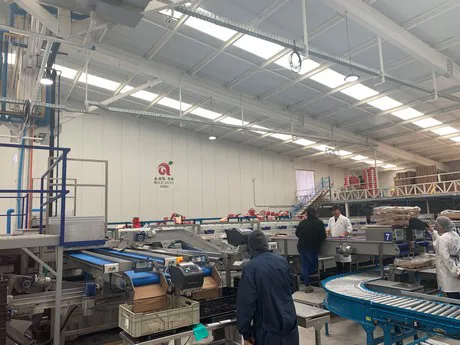
Gold Anda cherry processing factory
Mr. Xie further explained that "the rise of the Chinese fruit price depends on many different factors, and this development is still in progress. Chinese fruit continues to become more expensive, while the volume of import fruit grows, and consequently becomes cheaper as well. We expect the volume and the variety of import fruit to grow in the next few years."
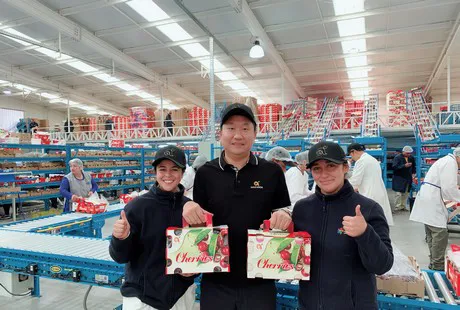
Gold Anda cherry processing factory
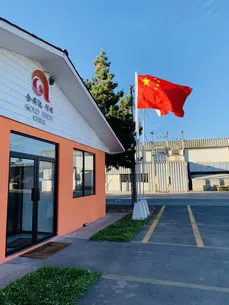 Cherries are the most popular imported fruit in China because they taste delicious and they are easy to eat. Gold Anda aims to use this commercial opportunity. They emphasize investment in the cherry industry, which includes the purchase of three cherry plantations in Chile with a total surface area of 400 hectares. The cherry plantations are located in Valparaiso, O'Higgins, and Maule respectively. This distribution of production areas means that they can guarantee supply throughout the year with early-, medium-, and late-season cherry varieties. "We invested in cherry plantations and processing factories in Chile so that we can keep a close eye on quality control during every step of the production process. Furthermore, the overall demand for cherries in China is huge, while the annual supply volume from Chilean cherry plantations is limited. Having our own plantation means that we can guarantee a certain supply volume. And we can expand our plantations in the future to increase that supply volume. We are currently working on the development of a new cherry variety."
Cherries are the most popular imported fruit in China because they taste delicious and they are easy to eat. Gold Anda aims to use this commercial opportunity. They emphasize investment in the cherry industry, which includes the purchase of three cherry plantations in Chile with a total surface area of 400 hectares. The cherry plantations are located in Valparaiso, O'Higgins, and Maule respectively. This distribution of production areas means that they can guarantee supply throughout the year with early-, medium-, and late-season cherry varieties. "We invested in cherry plantations and processing factories in Chile so that we can keep a close eye on quality control during every step of the production process. Furthermore, the overall demand for cherries in China is huge, while the annual supply volume from Chilean cherry plantations is limited. Having our own plantation means that we can guarantee a certain supply volume. And we can expand our plantations in the future to increase that supply volume. We are currently working on the development of a new cherry variety."
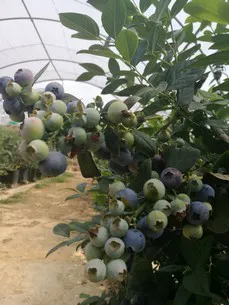 Apart from cherries, Gold Anda also produces and packages European plums, kiwi fruit, and walnuts in Chile. The first packaging factory closed in 2018 after management problems, but Gold Anda doubled down on their focus in Chile and the second packaging factory will open in October, 2019. The new packaging factory offers an integrated environment for cherry, European plum, blueberry, kiwi fruit, apple, peach, and walnut packaging lines. Gold Anda already has many plantations and packaging factories in various provinces in China. The company produces oranges, blueberries, kiwi fruit, and other citrus products. The heart of their fruit production is in Yunnan. "We have among the best blueberry plantations in China and we produce top-quality blueberry products. The production of blueberries in Yunnan greatly benefits from the warm temperatures in all four seasons of the year. We began growing blueberries in Yunnan last year and this year we had our first harvest. We sold them at an excellent price. Of course, this is mainly the result of the excellent product quality. The flavor of our blueberries is much better than regular blueberries."
Apart from cherries, Gold Anda also produces and packages European plums, kiwi fruit, and walnuts in Chile. The first packaging factory closed in 2018 after management problems, but Gold Anda doubled down on their focus in Chile and the second packaging factory will open in October, 2019. The new packaging factory offers an integrated environment for cherry, European plum, blueberry, kiwi fruit, apple, peach, and walnut packaging lines. Gold Anda already has many plantations and packaging factories in various provinces in China. The company produces oranges, blueberries, kiwi fruit, and other citrus products. The heart of their fruit production is in Yunnan. "We have among the best blueberry plantations in China and we produce top-quality blueberry products. The production of blueberries in Yunnan greatly benefits from the warm temperatures in all four seasons of the year. We began growing blueberries in Yunnan last year and this year we had our first harvest. We sold them at an excellent price. Of course, this is mainly the result of the excellent product quality. The flavor of our blueberries is much better than regular blueberries."
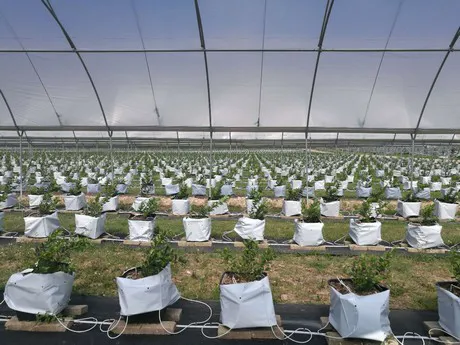
Gold Anda blueberry plantation in Yunnan
Gold Anda currently imports oranges, cherries, grapes, plums, durian, and mangosteen from Canada, the USA, Chile, Australia, Egypt, South Africa, and Thailand. In China they mainly focus on specialized fruit stores, supermarkets, and wholesale markets to retail their products.
Mr. Xie - CEO
Company name: Gold Anda
Telephone number: +86 755 25154488
E-mail address: xjs@goldanda.com
